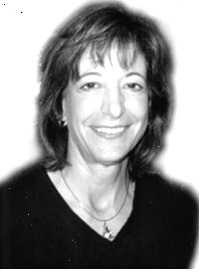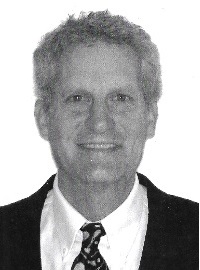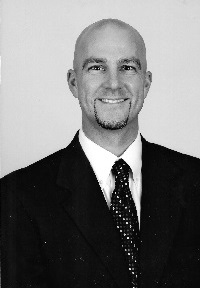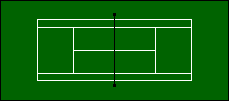 |
|||
 |
 |
 |
|
Nancy Brisette Essexville Garber |
Joe Gentle North Muskegon |
J. Scott Zerlaut Grant |
|
(click on Inductee's name to read 'description')
 |
|||
 |
 |
 |
|
Nancy Brisette Essexville Garber |
Joe Gentle North Muskegon |
J. Scott Zerlaut Grant |
|
(click on Inductee's name to read 'description')

 Nancy Brissette, Essexville Garber High School
Nancy Brissette, Essexville Garber High SchoolAlthough Nancy Brissette attended Grosse Pte. South – and even had a physical education class with the legendary Stephanie Prychitko (1986 Hall of Fame with lots of state championships) – she was not a tennis player, at least not yet. She grew up riding horses and worked at a polo farm. After graduation from U of M, she took up serious running, competing in half-marathons and six marathons. She even qualified for Boston twice, the Wimbledon of running for Americans.
Nancy moved to the Bay City area because husband Mark was clerking for his uncle on his way to a law degree. When Mark went to work for his uncle, Nancy, who had substitute taught in the Detroit area and taught kindergarten at University Liggett, got a job teaching 1st grade in Essexville. But still no tennis.
That changed when she took a summer clinic with Essexville Garber renowned coach Harold Holcomb. Universally admired, Hoke was our association’s third president and is in our Hall of Fame. “It was a blast and I got the most improved player award,” she says. “A group of us would drive to the Midland Community Tennis Center for court time and then I started playing leagues there. Hoke started organizing leagues at Garber and I started playing in those. I got hooked on tennis and took some private lessons from him.”
Obviously, Mr. Holcomb was impressed, offering an assistant’s job to Nancy. “I resisted because I didn’t know the first thing about coaching and I really wasn’t all that great a tennis player,” she says. “But once I started coaching, I took clinics and private lessons from pros in Midland. After retiring from teaching, I taught classes at the Midland Community Tennis Center.”
The turning point was when the legendary Hoke suffered a stroke. These were big shoes to fill but Nancy had the considerable aid of veteran assistant and long-time MHSTeCA board member Jeff Newingham. “He was invaluable to me as a mentor,” she says of Jeff, “especially with the recordkeeping. He helped me to understand the seeding process and how important it was to have a tough schedule.”
Nancy also kept Hoke’s spirit alive by conducting a summer program each year she coached. And understandably, she served on a committee that renamed the Garber facility The Harold Holcomb Tennis Courts. There his accomplishments are displayed on record boards.
Nancy managed regional tournaments for both boys and girls during the majority of the time she coached. She directed Saturday tournaments and the Bay County Championships. She ran a summer program every year. She served on the state seed committee.
Nancy was so well thought of by her colleagues that she became our president in 2007. It was not the easiest era to be our leader: Our association was in the midst of the 10-year Gender Equity Lawsuit wherein she was often our spokesperson and on the firing line. She submitted a 14-page affidavit (it didn’t hurt that her husband is an attorney) --- as well as briefs--- to the Sixth Circuit Court and then to the Supreme Court. “It was a huge disappointment that we were denied after all the work we put in,” she says. Even though Mark had, given his experience with the local judge, predicted the outcome, Nancy persisted because “I knew our association was passionate about trying to do something.”
“She handled that delicate issue very well,” says North Muskegon’s Joe Gentle who followed her as president. “She was a role model for me. After her term, we were thrilled when she volunteered to fill the important role of All Academic Chair.”
Ed Waits can testify as to how arduous this semiannual task is. For a period of a approximately a month after each season’s regional, she wends her way through a stack of all academic applications, some from folks who fill them out incorrectly and some from coaches who are not current members, a requirement. It is a long, boring, and sometimes very frustrating task, replete with e-mail messages back and forth between her and Ed as to the status of so many. The two often vent but she continues in that role, sending out over 100 certificates each season – at her own expense. “My way of giving back,” she says.
She certainly has, and then some. “I was a caretaker president,” says Ed, who served from 1991-1993. “Tiger and Bob took care of the real problems at the time. But Nancy led our organization under arguably the most difficult time in our history.”
Good coach. Good leader. A severe hamstring pull in 2006 and the ensuing back pain caused her to eventually quit coaching but she still serves.| Back to Top |
 Joe Gentle, North Muskegon High School
Joe Gentle, North Muskegon High SchoolOver his distinguished career as a high school tennis coach, Joe Gentle has touched virtually every achievement base. He has been a state champion coach (actually a co-state championship with perennial state titlist University Liggett in 1995). He has been our association’s president. He has served on the state seeding committee numerous times. He has organized and managed multiple regional and Saturday tournaments and helped host a Class C-D final event. He has been chosen the MHSTeCA state-wide Coach of the Year three times – 1995, 2004, and 2006. He has been named his All Area Coach of the Year for both boys and girls even more often.
Jeff Cooke, the North Muskegon athletic director, once described him as loyal, committed, a man of character, a good man, and as dedicated as they come. “He made North Muskegon a consistent power in the area and in Class C-D,” he says. “He exhibited all the personal and professional qualities one would want in a candidate for an honor such as this.”
“He was the voice of reason,” says Peter Militzer who was president when Joe was a vice president. “He had the ability to take dissenting views, placate them, and bring them to a common point.”
“Joe was easy to talk with and quite knowledgeable about the game,” says incoming president Eric Gajar. “Though soft spoken, he stood up for what's right and it was very evident that his players liked and played hard for him.”
Indeed, the verb touched (see paragraph one) is more appropriate than stomped on because this gentleman served our sport and our association with such good grace and a genial nature. “He led in a quiet serious manner with high integrity,” says Tiger Teusink. “Yet you better be prepared as his kids played 100% of their skill level” adds Hall of Famer Jim Cummins who describes Joe as a class act. “I always felt that his kids were reaching the maximum as the result of his coaching.”
Spring Lake’s Charlie Bassett, himself in the Hall of Fame, concurs. “I played North Muskegon from 1970 to 2012,” he says. “You knew that when you played Joe, you’d better be ready for a dog fight. He was the best coach they ever had”
Joe was the boys coach at North Muskegon for 27 years and the girls coach for 13. In that time, his teams finished in the top ten of their Class/Division 16 times (10 boys, 6 girls). His squads were runners-up at the state championships three times, twice in boys and once girls. The girls finished in third twice. The boys won eight regional titles; the girls, five. His overall record for both is 249-137.
But it was a not a direct route to North Muskegon. Starting the game in junior high, Joe played for Rochester High School before the Jerry Murphy era: 1969-1971. He was 3S his first year and 1S the next two. While pursuing a degree in math at U of M, he was deemed good enough to teach tennis at two prominent clubs in the Detroit area in the early years of the tennis boom: the Bloomfield Tennis House and the Beverly Hills Racket Club. The experience was so gratifying that he changed his major to get a teaching certificate in science education.
After a stint teaching tennis in Chile (a long story but an invaluable experience), Joe switched to computer science, completed his master’s in that field, and took a job with GE Medical Systems in Milwaukee writing software for CAT Scan machines. He left GE after five years to move to West Michigan where his wife is from. He wound up at North Muskegon as the person in charge of computers and computer education at the school.
Lucky them. Among his many strengths, Joe was an excellent tournament administrator. “During summers, Holland and North Muskegon were members of the USTA Inter-City Competitive League,” says Tiger. “Joe was Director/Coach and his players were always so well prepared to play. He was well-organized to deal with the many matches and our experience was always very positive with good sportsmanship and high standards of play.”
Joe left this impressive body of work for retirement in 2015 but his manner and conduct, not the achievements of his teams, are what lingers in the minds of so many of his colleagues . “I first met him at the Division 4 State Finals the first year I became coach at Garber,” says Nancy Brissette. “I was impressed with his calm and self-effacing demeanor. He was so encouraging and helpful even though his team was so very good.”
This was a winning coach who was also a pleasure to play, someone you didn’t mind so much losing to. He was also a pleasure to work with, as so many of us appreciated through the years.| Back to Top |
 J. Scott Zerlaut, Grant High School
J. Scott Zerlaut, Grant High SchoolIt is a misnomer to label the tiny farm community of Grant a high school tennis team desert. It is more of a reclaimed swampland; many of the small lakes, ponds, and swamps in the area having been drained to produce soil so organically rich that it has been known to catch on fire. Back in the day, you would have had to drive these fruitful fields to arrive at empty, cracked tennis courts abundant with grass and weeds. That is, before Scott Zerlaut returned to his alma mater. That’s when the high school tennis program itself began to catch fire.
Alas, for so many years having Grant on your schedule meant a day off for many opponents, at least metaphorically. Or a chance to play your JV team against their varsity. And before that, “There was no tennis program when I went to middle school or high school in Grant,” he says. “Therefore I didn’t have a background in tennis early on. Grant had only four courts and I played some tennis in 9th grade PE class. My main sport was basketball. I was one of the starters that won the conference in 8th grade. I was the only freshman to make the JV squad. I played the remaining three years as a varsity starter.” He also won the conference tournament in the 300 yard high hurdles as a sophomore in track and anchored the sprint relays. He only played tennis with his friends for fun, trying to imitate Andre Agassi and Jimmy Connors.
Scott married Melinda, his high school sweetheart and a three-sport standout athlete, straight out of high school and both attended Lawrence Tech in Southfield on academic scholarships. “Playing tennis was how we spent much of our free time,” he says. “The tradition continued as we transferred to CMU and would ride bikes to their courts. I ended up changing my major to education and chose to get a PE minor. Because of the switch, I signed up for a tennis class to get some more formalized instruction in the sport. During a PE class, my professor commissioned anyone in the class to help build a hitting wall. I guess this was my first step in giving back to the sport of tennis.”
After graduation, Scott landed a job in Zeeland before it split into two high schools. Through a fortuituous chain of events – probably because the folks there recognized his potential even though he had almost no tennis experience (he says he couldn’t even properly feed a ball), ---he became Zeeland’s varsity girls coach. That meant a quick immersion into big time high school tennis, rubbing shoulders with the likes of Tiger Teusink, Karen Page, Elliott Pearce, Bonnie Wall, and later, Peter Militzer at the Kalamazoo state tournament.
In spite of Tom Wolfe’s admonition “You can’t go home again,” Scott proved the author wrong. He came back to Grant to teach and coach at his alma mater with plenty of tennis coaching experience against some of the best in the state. In Grant, he did all the right things. He petitioned the school board to build two more courts (a grant from the Fremont Area Foundation provided the funds). He drove 40 miles to the closest club to learn more drills. He got to know some more of the area’s best coaches: Tom Kudwa, Charlie Bassett, and Joe Gentle. He started the community’s first summer tennis program.
He created “The Tiger Open,” a summer invitational to raise funds for a ball machine and a hitting wall. Players from several different areas would come to play over two days, a situation unheard of just a few years prior. He took a group of boys south on spring break for workouts at Florida State University and the Tampa area. With the assistance of the USTA, he arranged competitive match play on Friday mornings in the summers with Grand Rapids schools. He took over the West Michigan rankings position for our organization and hosted his all conference and all area meetings. He took boys north last summer to play in the Traverse City area.
It was very slow-going but the efforts paid off. Grant became more competitive over the years. For instance, in the fall of 2010, his boys team went 7-2-1 and came within one point of qualifying for the state tournament.
Scott’s peers couldn’t help but appreciate what he was doing with so few built-in advantages. Even when his girls team went 1-10 in the spring of 2008, his colleagues voted him Regional Coach of the Year and the MHSTeCA board added the state honor. They did it again in 2014, this time with a record of 0-8, 8th in the conference, and 7th in regional.
Why? It was evident that this coach was committed even though so often he had little to personally gain. He would invariably attend regional seeding meetings even though none of his kids had a chance of gaining a seed. “He always attended and contributed to our all-area meetings even though he knew his players were not likely to be selected,” says North Muskegon’s Joe Gentle. Scott contributed not only to the choices but the discussions regarding issues and helped make plans for summer tennis activities. He ultimately took over the management of these meetings. As a MHSTeCA board member, he compiles the Regional Coach of the Year information and runs the decision making for state-wide honors.
Those honors – both in his area and in the state – now include Grant players. Dual meet and regional outcomes have gradually improved over the years, in part because another Zerlaut is on the team and more will follow. Scott’s son Karlton plays 1S and is a force to be reckoned with. This past fall, he made it to the quarterfinals and was named all-state, the first in the history of the school in our sport. His excellence inevitably brought together classmates who become teammates. Playing Grant is no longer a laugher.
Scott is the epitome of the grass roots coach, a guy who develops players, not inherits them. His current record is 119-214 with 29 ties. Although it has been slow going, he is not the first one with this kind of record to enter our Hall of Fame. He grows the game. He is the Mr. Tennis of Grant.
And the future continues to be promising. Yes, three other Zerlauts are destined to follow Karlton, all possessing some pretty impressive genes and gaining the all-important competitive experience that tennis players need before they get on their high school’s varsity team. They will be led by Dad, a member of the Michigan High School Tennis Coaches Association Hall of Fame.| Back to Top |